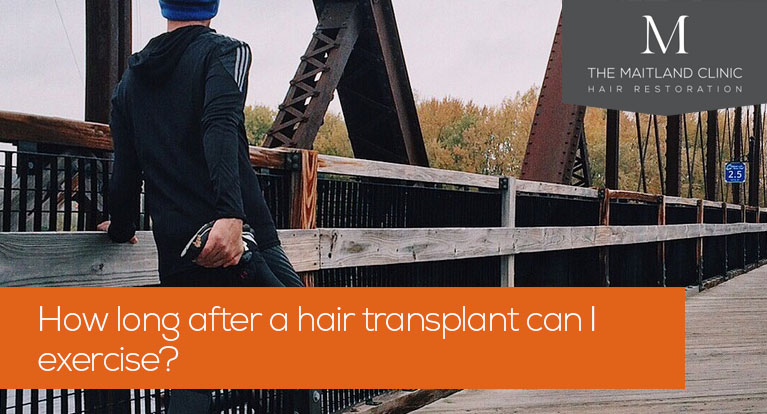How long after a hair transplant can I exercise?
25th February 2019

A hair transplant – whether FUT or FUE – is a serious medical procedure. Proper aftercare is required to protect your new hair grafts and your general health, and that includes making sure you don’t return to normal activities – such as going to the gym – too soon. So how long after a hair transplant can you exercise?
It is recommended to avoid strenuous exercise until at least ten days after hair transplant surgery. Some light exercise such as walking and yoga can generally be undertaken from four days after a transplant – but you should always seek advice from your surgeon.
Both Follicular Unit Excision (FUE – also known as Follicular Unit Extraction) and Follicular Unit Transplant (FUT or Strip) hair transplants involve taking healthy hair follicles from a donor area of the scalp and transplanting them to the areas affected by hair loss. Tiny incisions are made in the recipient area of the scalp, and the hair grafts are placed into these sites.
In the days and weeks following the procedure, these new hair grafts are very fragile and require care to protect them, to keep them in place and to allow your scalp to heal properly.
Strenuous exercise can be a threat to new hair grafts for several reasons:
- Blood pressure: An increase in heart rate from exercise will raise your blood pressure and might increase the possibility of bleeding in recipient areas of your scalp, dislodging the grafts, or in the donor area.
- Sweating: The scalp can be very sensitive after a transplant, and saunas, running or other cardio exercises that cause sweating may irritate the scalp and damage new hair grafts
- Stretching: Certain exercises that stretch the back of the neck (such as sit-ups) may apply a stretching force to a FUT scar. In order to give the best chance of healing with a fine scar, it is best to avoid exercise for the first 2 weeks after FUT surgery and to avoid such stretching activities for the first couple of months.
In the long term, exercise is of course highly beneficial to your general health and also to the health of your transplanted hair follicles. But in the short term, you may need to put your normal routines and gym visits on hold.
Returning to exercise after a hair transplant
Every patient is different, and at The Maitland Clinic we can provide you with specific aftercare advice tailored to your individual circumstances, including how soon you can return to different kinds of exercise.
However, as a general guide, here’s a typical recommended schedule for getting back into strenuous activity after a hair transplant:
After a hair transplant how long should you wait to exercise?
1-3 days after your hair transplant: no exercise.
Immediately after surgery you should avoid any physical activity as far as possible, including working and unnecessary walking. This is a delicate time for your new hair grafts and you won’t be able to touch them. We suggest you avoid bending over and trying to keep your head above the level of your heart in order to minimise swelling during this early stage. (At The Maitland Clinic we’ll provide you with full instructions for looking after your hair, as well as Liposomal ATP aftercare sprays to optimise the grafts’ healing and growth.)
4-9 days: some very light exercise
In this period some light, non-strenuous activity such as yoga or gentle walking is usually permissible, but you should avoid running or cardio exercise which can cause sweating or a significant increase in blood pressure.
If you notice an increase in swelling or irritation during this time, then you should reduce or cut out your exercise for a few days more.
From 10 days: cardio exercise, gym and weights training
This is the time that your scalp should be free of scabs and swelling. In most cases, it will also be permissible to undertake some cardio exercise, gym and weights training. However, if you have had FUT surgery, you should avoid an exercise that stretches the back of the neck for 2 months after your procedure.
Stitches from a FUT procedure are removed from the donor area after 10-14 days.
These are general guidelines, but you should always seek advice from your surgeon. At The Maitland Clinic, we are on hand to provide full information and support in the weeks, months and years after your hair transplant.
Related questions about hair transplant recovery
How long does a FUT or FUE hair transplant take to heal?
Your scalp should be healed and scab-free by day 10 after FUT or FUE hair transplant surgery. Typically, the new hairs will begin to grow through in the treated areas of the scalp after four months, continuing to thicken over the first 10 to 15 months.
Read more in our blog post: What is the average healing time for an FUT hair transplant? (Plus: what to expect in the recovery period)
How soon can I return to work after a hair transplant?
For most patients we advise that you can return to work after about 10 days, when your scalp is healed and scab-free. Some patients wish to return to work before this, which can be fine so long as they don’t mind their scalp possibly showing some crusts and redness in the treated areas.
Can I wear a hat immediately after a hair transplant?
Our recommendation is to avoid wearing hats during the first 5 days while the grafts are still fragile. From day 6 post-op the grafts are secure and it is fine to wear a hat. If you wish to conceal your grafted areas immediately after a hair transplant we wrap your scalp in clingfilm (after spraying liberally with the ATP aftercare spray) and then place a light hood over the top. This is something you can repeat if you need to conceal things during the first 5 days of recovery.
More about aftercare
A hair transplant is something that should last your whole life, and at The Maitland Clinic we view our our patients as lifelong beneficiaries of our hair care service.
You’ll be able to check in with us for ongoing support and advice in the months and years after your transplant procedure. Read more about our aftercare service here.
To arrange a consultation please contact us, or call on 02392 706 122.










